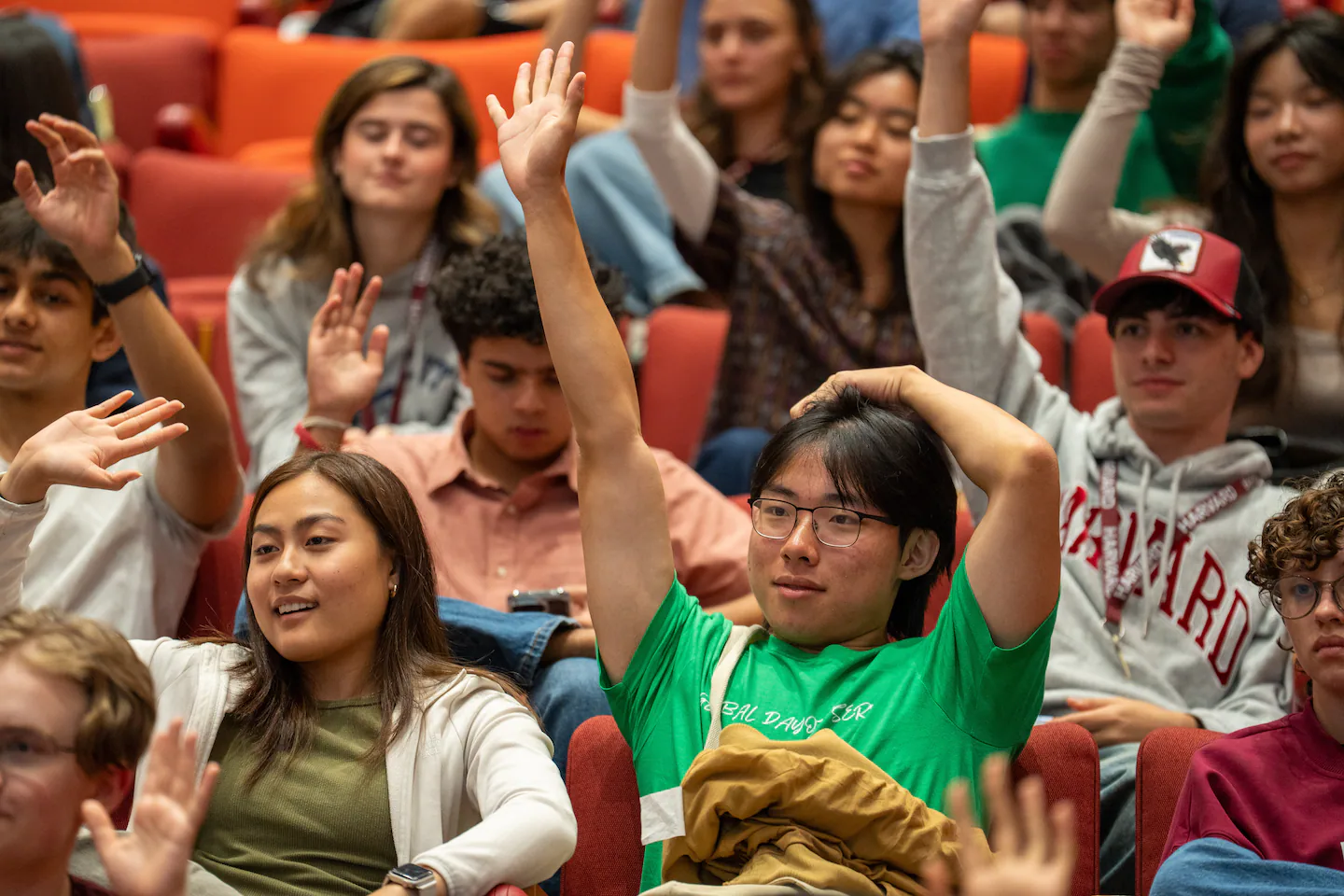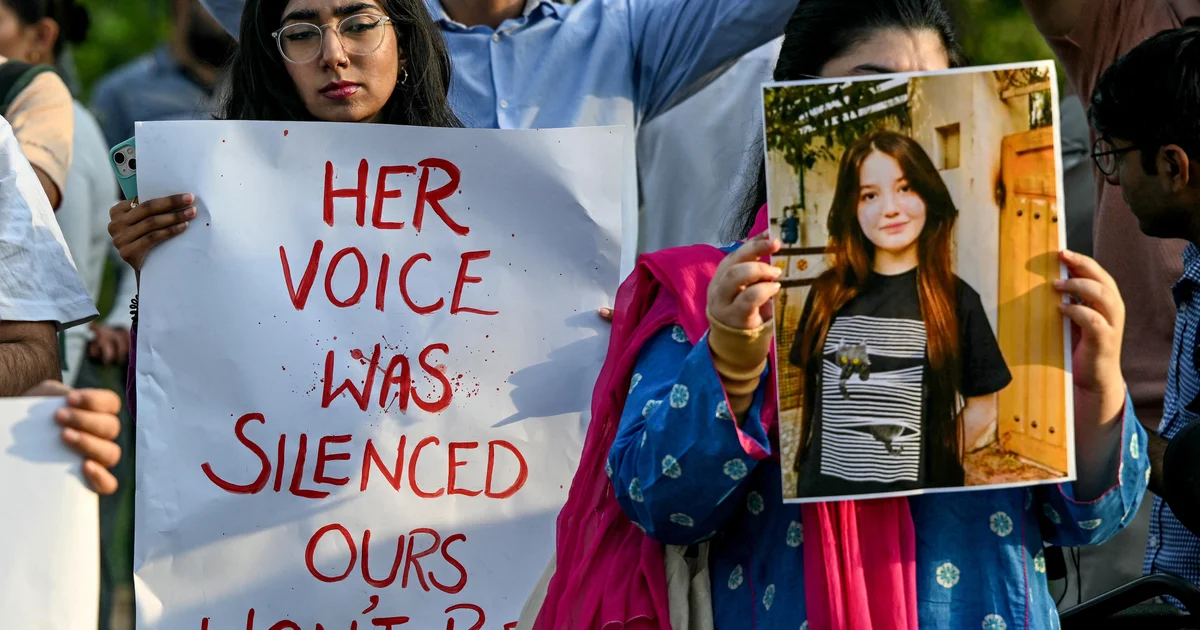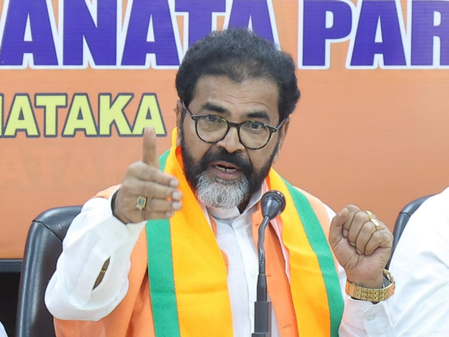
“It allowed us to normalize being able to have a fun experience with someone completely different than you,” said Taylor Beljon-Regen, a government student who played Tango as part of freshmen orientation. “I came to college looking to engage with different viewpoints that can change my mind about political or social issues.”
Greene and Woodley are trying to do what a lot of people talk about: easing polarization in the country. With a partisan standoff in Washington shutting down the federal government, they might argue that their timing couldn’t be better.
Tango grew from Greene’s and Woodley’s search for an antidote for social media, widely blamed for transforming disagreement into hatred as it feeds on outrage, resentment, and grievance. Social media often works by inflaming differences of opinion, distributing controversial and infuriating content that gains eyeballs, but leaves people feeling worse about those with different political views.
A 2024 poll by John Hopkins University found that more than half of Americans describe members of the opposing political party as “downright evil.”
Tango also starts with differences of opinions, but instead of just fueling argument, relies on verifiable fact to settle them. Along the way, the game builds connections, unravels preconceived notions, and lays the groundwork to disagree, as the saying goes, without being disagreeable.
“We want this to be the opposite of divisive social media,” said Greene. “We want to spread trust and respect in a scalable, engaging, and healthy way.”
In the game, players answer questions about party affiliation and views that place them on the political spectrum. Then they are paired with an anonymous partner, only knowing that the partner’s beliefs are diametrically opposed to theirs.
The two-person teams answer a series of trivia questions, only communicating via chat, and only scoring points if both participants enter the correct answer. The questions, however, are not meant to stir debate; each question has a single correct answer, while still showcasing partisan knowledge gaps.
Winning the game requires teammates to rely on each other to fill those partisan knowledge gaps to come up with the right answers. For example, Democrats are more likely to know who are the main characters of the Netflix show “Stranger Things,” about a group of teens uncovering supernatural mysteries in a 1980s small town.
Republicans, meanwhile, might know the name of the family from “Duck Dynasty,” a reality show about a Louisiana duck hunting goods company.
As the game progresses, the questions touch on political issues that affirm or challenge partisan beliefs. For example, participants who are more liberal were more likely to know that immigrants in the US commit relatively few crimes. Conservative participants knew that the vast majority of gun-related deaths do not involve assault rifles.
The pacing of the questions from least to the most controversial is intentional, said Greene, who has extensively researched moral judgment and decision-making in humans. Participants are eased into simple disagreements, helping them later to confront more difficult topics.
“By the time people get to those questions that ask them to kind of bend a little bit, ” Greene said, “they handle it very well.”
Greene and Woodley conducted a controlled study, the results of which they published this summer in the journal Nature Human Behavior, and found that people ended the game more sympathetic toward their political opposites.
Before and after the game, participants are asked to rate how warm they feel toward the other political group based on scale of 1 to 100. In the controlled study, researchers saw a spike in warmth between liberals and conservatives after playing the game, increasing by up to 12 points and lasting as long as four months.
The results were similar for the Harvard freshmen. People who identified as liberals had a significant reduction in animosity toward conservatives after the game, and those who identified as conservatives felt more comfortable in voicing controversial views on campus.
The game does not attempt to make participants agree with each other but rather recognize how life experiences may influence worldviews. About 80 percent of the participants at Harvard showed interest in meeting their anonymous partners after the game.
“It didn’t play to our political preference as much as I thought it would,” said Dora Chen, who is studying Social Studies at Harvard. “It was more about collaboration. There were points where we had different answers but in the end just went with whoever knew it more.”
Greene and Woodley, who had previously worked on conflict resolution strategies in higher education, are working to roll out the game to other colleges and universities. They also have started collaborating with businesses for using Tango to help depolarize workplaces.
Then, the researchers want to build the game into versions that can be used in parts of the world riven by sectarian and political divisions, such as Israel, India, and Northern Ireland.
And if those places don’t provide enough of a challenge, Greene and Woodley always have Congress.



